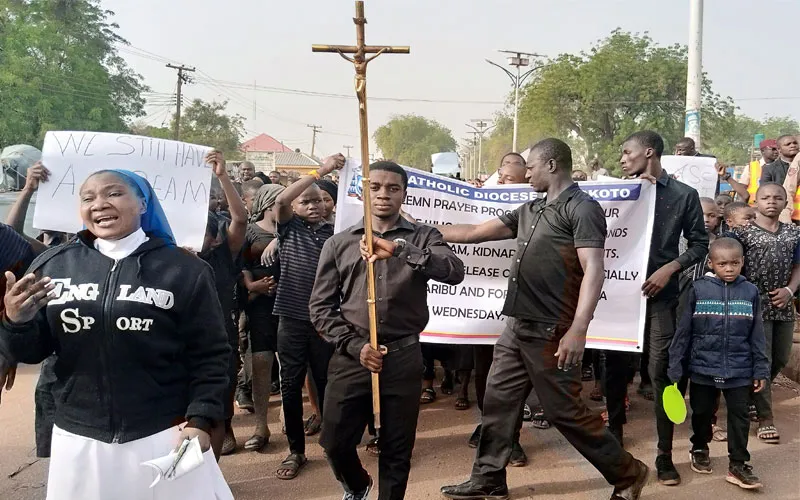Through the Ash Wednesday prayers, Christians “are asking God to help reawaken those whose responsibility is to ensure peace and harmony among Nigerians so that things will be as it has always been in Nigeria,” the 61-year-old Nigerian Prelate said.
Speaking to ACI Africa Thursday, February 27, the Secretary General of CBCN, Fr. Zacharia Samjumi said, “On Sunday, 1 March 2020, at 3pm, the Bishops and the Catholic faithful in the Archdiocese of Abuja will hold a prayer procession for the same reason wearing black.”
Meanwhile, Bishop Emmanuel Badejo of Nigeria’s Oyo diocese expressed his belief, in an interview with Vatican News Wednesday, February 27, “that the kind of language and gestures we speak now must be direct to show that Nigeria simply cannot continue this way.”
“If the Government cannot protect the freedom of religion and the security of life and property, we have to ask – what kind of Government is this?” Bishop Badejo probed.
Bishops in Nigeria “have declared their moral responsibility to stand up for the people” by directly telling the government “it can no longer pretend to be protecting Christians when in fact not one single person has been prosecuted of all those who have been slaughtering people, simply because of their declaration as Christians,” the 58-year-old Prelate who is also the President of the Pan-African Episcopal Committee for Social Communications (CEPACS) said.
Referencing the Prayer Protest, Bishop Badejo expressed his appreciation for the Christian faith among young people in Nigeria and that “the evidence of this is that young people were in the majority among those who attended (Ash Wednesday) Mass across Nigeria.”
In the Catholic Diocese of Jalingo, central Nigeria, hundreds of Catholics in black attire gathered for the Ash Wednesday Mass, with the Local Ordinary, Bishop Charles Hammawa pleading with the international community “to come to the aid of Nigeria, especially poor and helpless Nigerians who no longer feel safe anywhere in the country.”
On his part, Archbishop Ignatius Kaigama of Abuja decried the divisions among Nigerians saying, “instead of looking at the common good and what binds us together in love, peace, and happiness, we are so sectional, polarized and so fragmented, and that is why even with plenty we are still suffering, there is lack of employment, poverty hunger and all that.”
The 61-year-old Nigerian Prelate reminded the congregation the meaning of the Lent season saying, “We are being summoned to come back to God, all Nigerians, without exception, the Christians, the Muslims, the traditional worshipers, all of us, let’s return to God and we shall see the wonders and miracles that God will do for us at the end of the spiritual journey.”
To Augustine Diala, a parishioner of St. Michael’s Catholic Parish Amakohia in the Archdiocese of Owerri, the black dress code by Nigerian Catholics on Ash Wednesday was an indicator that “people are not happy with the killing going on in the country. We have a government that promised us change, unfortunately, what we are seeing is the reverse.”








